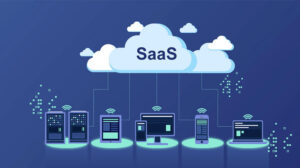There are many people who are reliant on email. In enterprise settings, they use it for just about everything, including – but not limited to – sending important documents to themselves so that they can be used later on another device. But is email safe? Are the servers through which these missives are sent secure enough to be trusted with important information?
The answer to these questions are increasingly against the channel's favor. Email has plenty of uses, but its shortcomings should prevent it from being taken seriously as a primary mode of communication. It is not secure enough to be trusted with certain company files, and as such an alternative should be sought out.
In place of email, more companies should consider heavily integrating fax services into their daily operations. But instead of relying solely on the aging, siloed fax machine, consider making the move to cloud-based faxing.
Large percentage of email users too easily exploited
One of the biggest problems with email is how the criminal campaigns that leverage it are able to use deception in their favor. While it would be excellent to believe that those who have office email accounts would be prone to exercising more caution with messages they receive, this is often not the case – namely for the Canadian Justice Department.
A recent test conducted by the Justice Department of Canada brought attention to the staggering lack of care that the organization's employees take when using government email, Global News reported. A fake phishing scam was developed and distributed amongst 5,000 workers – 37 percent of which did not pass the test.
This figure represents an unfortunate global trend: there are too many people that can be easily hoodwinked by a clever email scam. But that is not to say that this is the fault of the people who open these messages and click on these links. Cyberthreats are constantly evolving to compensate for advancements in protection and prevention. As these traps get more advanced, the likelihood of more business employees being fooled actually increases.
Playing off of emotion
One of the reasons that many illegal email operations succeed is thanks to the feelings they can exploit. A popular angle that has been taken in recent months is to assume the identity of a criminal investigator or law enforcement organization. According to the Daily Press, one such campaign is taking place in Virginia.
A message claiming to be from the Virginia court system is making the rounds, telling potential victims that their presence is being requested at a hearing. They are instructed to click on a link that will provide them with an official notice, but doing so initiates the downloading of a virus. The Daily Press reported that similar issues have been reported in New York, and that court systems in general rarely – if ever – will engage in unsolicited communication outside of a physical letter.
With scams stepping up their sophistication, it stands to reason that messages can be crafted to resemble official company missives. Should a staff member receive such a message, they may click on a link without giving it a second thought.
Re-examining reliance on email in enterprise
It is time to take a closer look at a platform that has become almost synonymous with business communications. Email is, at its core, a flawed channel. There are certain times when its use can be justified, but increasingly relying on it as a go-to, secure method of connection and transmission is unfounded.
Instead, there should be a greater focus on bringing fax – a proven, well-defended channel – back into the fold of modern telecom. Many industries still rely on the security that faxing provides, but many are encumbered by its lack of integration with other platforms in the cloud. With so many tasks being completed remotely in the present day, there has to be an active engagement on the part of decision-makers to facilitate mobility across the network. This is why cloud-based fax makes so much sense to pursue.
"Modern fax solutions deliver mobility that traditional fax machines just can't match," wrote TMCnet contributor Mae Kowalke. "By going with a hosted provider, faxes can be sent and received over the Internet, enabling workers to fax and be aware of important incoming faxes from smartphones or tablets. This functionality should not be underestimated as increasing numbers of workers spend some or all of their "office" time outside of the office."
On a large scale, there needs to be an acceptance that email is not the end-all, be-all of office communications. In fact, it has serious flaws in its design that can be directly faulted for increasing instances of data loss – not to mention the legal and financial complications that spring from it. To avoid these situations, fax over IP should be leveraged accordingly.
Enhance enterprise communication, collaboration and compliance efforts with a proven FoIP solution from FaxCore. Contact FaxCore today to learn more about their 'Partly-Cloudy' fax solutions.




